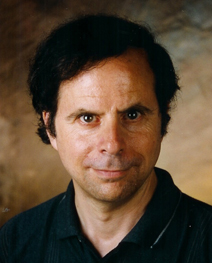New book examines dangerous trends toward surveillance state.
From Psychology Today
What Would Aristotle Do?
Published on October 24, 2010
Did you know that The Department of Defense has an ongoing research project to remote control soldier's emotions and tolerance for stress? A soldier who didn't display fear in dangerous situations and didn't experience fatigue, would make a better fighting machine. And what better way to turn a human being into a mere machine devoid of personal freedom and autonomy. In a world that is under total surveillance, there is not likely to be much we could call freedom. Freedom to speak or think would be freedom to speak or think what the authorities permit.
In my new book, Mass Surveillance and State Control: The Total Information Awareness Project , I detail the ways in which our personal privacy has been and continues to be eroded and how we are now heading toward a brave new world of total information awareness and control.
Now afoot is an interconnected web of trends toward greater and greater modes of control, which will predictably advance with the advent of new technologies and the loosening of constitutional safeguards against the abridgment of privacy. Accordingly, what is needed now more than ever before in the history of humankind is a vigilant, well organized, grass roots effort to stem this malignant tide before it is too late.
Steadily escalating is the program of warrantless wiretapping of millions of American's personal, electronic communications, which began under the Bush administration. This mass dragnet of personal email messages, phone calls, and Internet searches is now being done with a virtual blank check from the Foreign Intelligence Surveillance (FIS) courts, which were originally created in 1978 to assure that, in gathering foreign intelligence, the government would not abridge the Fourth Amendment rights of Americans.
The Obama administration has blocked law suits against telecom companies such as AT&T for assisting the National Security Agency in this mass dragnet of electronic communications; and it has also sealed up the ability of American citizens to seek redress by suing the federal government, even if it can be shown that such wiretaps had been unlawfully conducted.
The Obama administration has just announced its intention to make it easier to wiretap Internet communications that use encryption such as Blackberry transmissions, social networks like Facebook, and direct peer to peer transmissions like Skype. The Justice Department is also now seeking to get a federal appeals court to overturn a ruling prohibiting the clandestine planting of GPS tracking devices on people's cars without a warrant.
Congress has recently reauthorized the most invasive provisions of the U.S. Patriot Act. Pursuant to this Act, in the course of conducting a terrorism investigation, if a federal agent discovers evidence implicating a person in a crime, this information can be admissible in convicting the individual of that crime. Thus, if a person is under surveillance by the FBI and if it is discovered therein that this person is growing or possesses marijuana, then this information can be used to secure a criminal conviction, even though the information was acquired without probable cause. What is more, pursuant to the Patriot Act, the FBI agent would not need a warrant to conduct the terrorist investigation through which the incriminating information was acquired.
Amid such thin and ever diminishing legal protections, as surveillance technologies continue to be developed and expanded, we can expect increasingly greater and greater abridgments of privacy.
Consider, for example, how the Transportation Security Agency has recently advanced beyond the use of metal detection devices, baggage scanners, and physical searches. After an unsuccessful attempt by a would-be terrorist to ignite a bomb in Times Square, the Obama administration has stepped up use of body scanners at airports, which electronically undress people, exposing even their genitals. This may be just the tip of the iceberg.
The Defense Department is presently developing a new generation of scanning technology that can scan brains. Given the evisceration of Fourth Amendment protections, what legal safeguards are left to prevent government from taking its national security interests to the next level of requiring all air travelers to have their brains scanned for "suspicious" thoughts before boarding their flights? Changes of such magnitude do not happen overnight but occur incrementally. Once we give up our right to privacy regarding our bodies, it is that much easier to do the same regarding our minds.
In public places such as a city street Americans have been well advised not to expect privacy. However, in their own homes, Americans have always enjoyed a right to privacy. Unfortunately, the public/private distinction has already begun to be dismantled. A global positioning (GPS) device on your car over weeks, months, or years can paint an elaborate profile of you--whether you are having an affair, how often you frequent the local tavern, what people you visit, what political gatherings you attend, what congregation to which you belong, how often you attend services, and so on.
Radio frequency Identification (RFID) tracking devices placed on the things you buy are also a potential goldmine of private information about you; and it may be only a matter of time before these items come complete with both RFID and GPS tracking capabilities.
Most of us have also become increasingly aware of the presence of surveillance cameras on the nation's roadways as well as city streets. These surveillance cameras have also found their way into facilities such as banks and other "sensitive," privately owned properties. While some of these cameras are unmanned, others run live feeds that are monitored 24-7 by law enforcement. Such cameras are also plugged into a network of federal databases such as the FBI's biometric database, and, through use of special biometric identifiers (including facial recognition software), can integrate this data with the live feeds from these video surveillance cameras.
(Note: You can view every article as one long page if you sign up as an Advocate Member, or higher).





